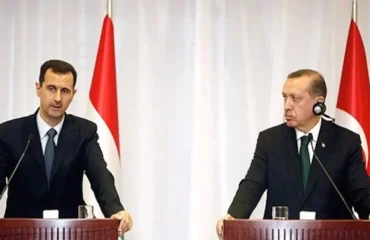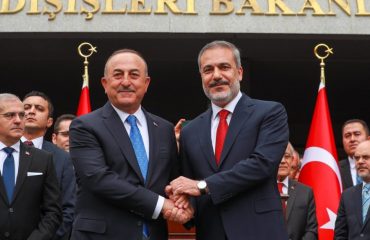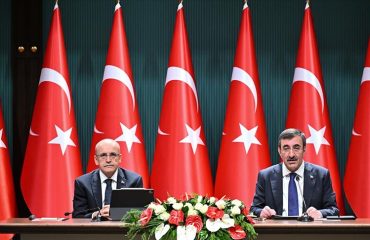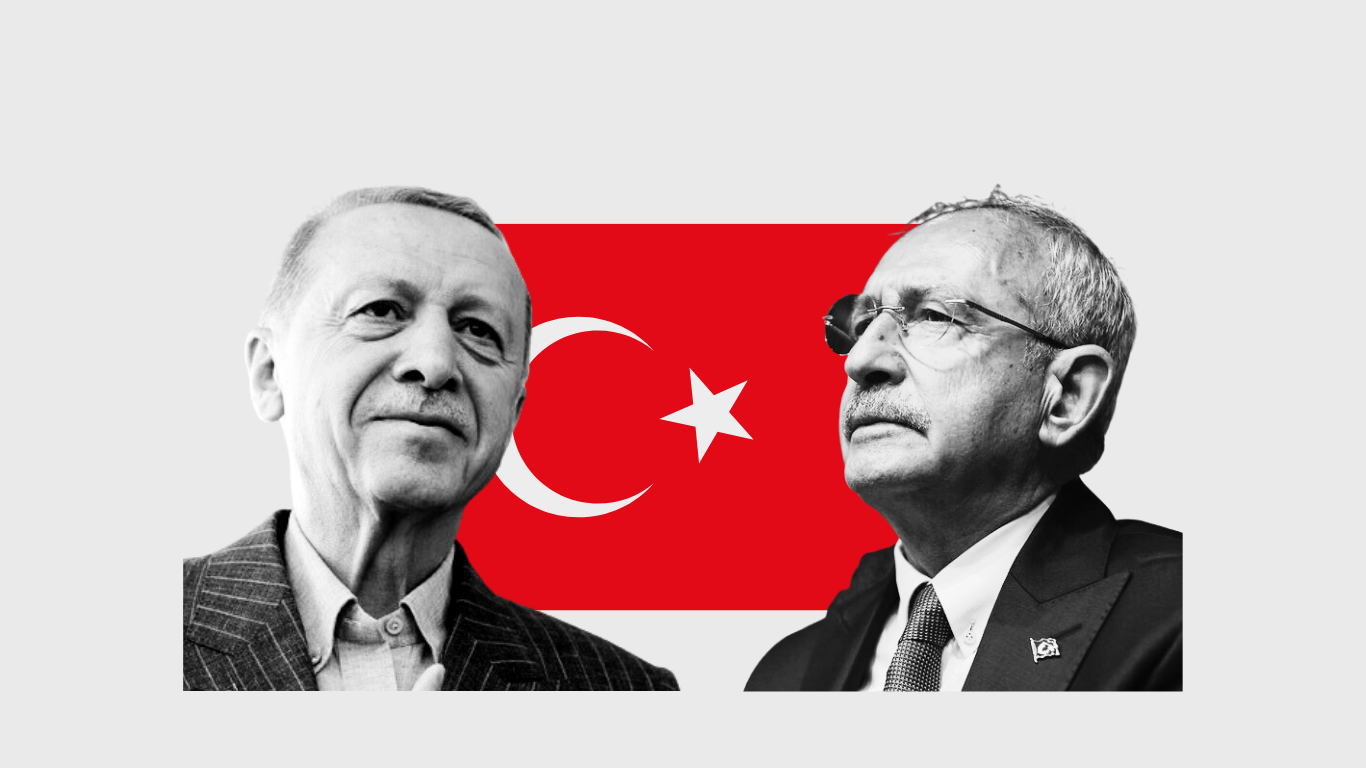
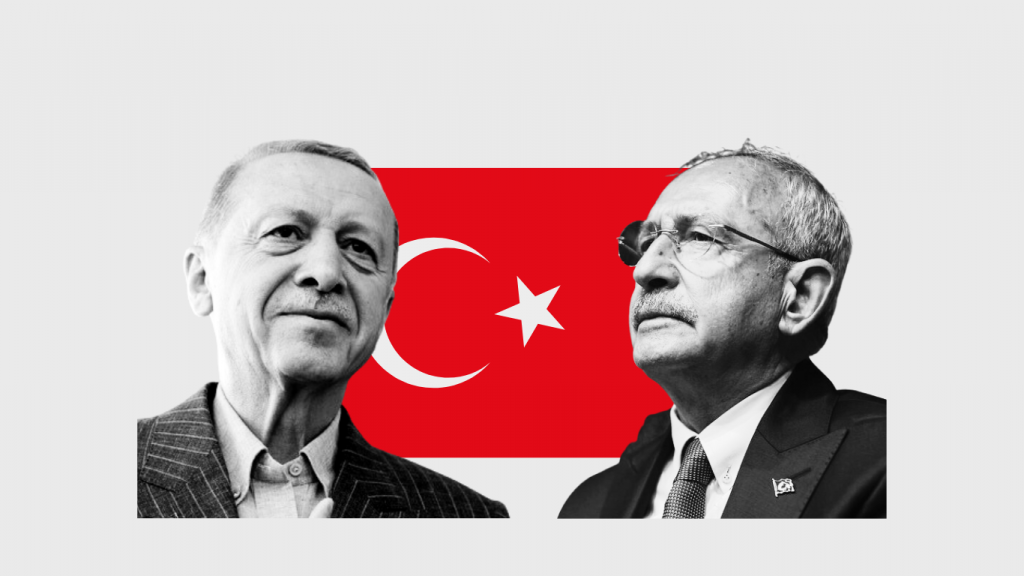
Türkiye is once again going to the polls on May 28 to elect its 13th president in the run-off elections amid the devastating effects of two major earthquakes, an economic crisis, increasing political polarization, and ballot-box security concerns.
Some 64 million voters cast their ballots to choose between two candidates: President Recep Tayyip Erdoğan and the opposition’s joint candidate Kemal Kılıçdaroğlu, who were unable to receive the majority of the votes in the first round of presidential elections on May 14.
More than 191,000 ballot boxes have been set up across the country for the election.
The voter turnout in Turkish elections was 87 percent in the May 14 elections and is expected to be high again as both parties campaign to bring more citizens to vote in a head-to-head race.
Mobile ballot boxes were set up for voters who are bedridden due to illness or disability. For the first time in this election, visually impaired voters are voting with a template prepared for them, as was the case in the May 14 elections.
President race: Kılıçdaroğlu vs Erdoğan
Casting his vote in Ankara, Kılıçdaroğlu said that he run the race under “very difficult conditions,” but he “trusts the democracy and freedom.”
“To get rid of oppression, to get rid of authoritarian rule, to bring true freedom and democracy to this country, I invite all my citizens to the polls. And after they cast their votes, they should protect the ballot boxes. Because this is an election that took place under very difficult conditions. All kinds of defamation, all kinds of slander were made. But I trust in the common sense of the people and democracy and freedom will surely come to this country. People will be able to walk the streets of this country in peace and criticize politicians freely. I send my heartfelt thanks to all the citizens who went to the polls and voted, who did their right to vote. I extend greetings and respect to all of you; I say thank you and thank you,” he said.
Erdoğan also voted in Ankara, stating that he believes the voting will end soon.
“For the first time we are witnessing a two-round election. And since our people will give their votes to these two candidates, I believe that today’s voting will end very quickly. However, we are witnessing such a vote for the first time in the presidential election in the life of Turkish democracy. There is no country in the history of the world where such a vote was held with a participation of up to 90 percent. Türkiye has fought for democracy with up to 90 percent participation, and I believe that it will do the same today. I ask Allah to bless our country and our nation. I especially ask my citizens to participate without complacency until the last moment,” he said.
Close race
The vote will determine the president, who will serve for five years with sweeping authorities under the Presidential Governmental System, which took effect after the 2018 presidential elections.
President Erdoğan for the first time in his 21 years of Justice and Development Party (AKP) rule, in which he served as both Prime Minister and President, is challenged by an opposition leader as the polls suggest a close race.
In the first round, Erdoğan received 49,24 percent of the votes, Kılıçdaroğlu had 45,07 while two other candidates, Sinan Oğan received 5,2 percent, and Muharrem İnce got 0,4 percent, even if he announced that he withdraw from the race one week before the election date.
Alliances war
Türkiye has experienced unprecedented political maneuvers in the May 14 presidential and parliamentary elections, where even the smallest parties joined alliances to increase their chances of getting a seat in parliament and endorsed joint candidates.
The six opposition parties’ Nation Alliance, which was formed upon the main opposition Republican People’s Party (CHP) and İYİ Party’s collaboration in the 2019 local elections, was the strongest challenger of the AKP’s People Alliance with the Nationalist Movement Party (MHP). They secured 212 seats in the parliament with 35 percent of the votes, bringing their candidate Kılıçdaroğlu to the second round.
Apart from the two alliances, the Kurdish-issue focused People’s Democracy Party (HDP), which had been considered the kingmaker with their 10 percent of cemented votes, and the socialist left entered the elections under the Labor and Freedom Alliance. They received 10 percent of the votes with the support of the Labor Party, as the campaign period witnessed debates within the alliance.
The Nationalist Zafer Party, which raised its popularity by appealing to far-right and anti-immigrant sentiments, also played a critical role in their ATA alliance. They received 2 percent of the votes in the parliamentary elections, but their presidential candidate, Sinan Oğan, received 5 percent, which shifted the political discourse in the second round campaigns.
Nationalist shift
The Opposition Alliance’s and Kemal Kılıçdaroğlu’ political campaigns were built upon an inclusive and consensus-seeking rhetoric amid rising political polarization in the country.
Even though the alliance included the right-wing İYİ Party, Future Party (Gelecek Partisi), DEVA Party and Saadet Party within it, Kılıçdaroğlu’s endorsement from left alliances was achieved with this inclusive tone.
Kılıçdaroğlu’s announcing his Alevi background was considered a taboo-breaking move as the country’s heterodox political fabric is based on Sunni-Turkish identity.
However, even though these inclusive moves were considered a positive effect on Kılıçdaroğlu’s building his political charisma, the May 14 election results indicated a rising nationalist sentiment in the country.
Despite serious in-party debates and the falling popularity of its leader, Devlet Bahçeli, the Nationalist Movement Party (MHP) has received unexpected 10 percent of the vote, while nationalist figure Sinan Oğan of the ATA alliance has received 5 percent.
After that, Kılıçdaroğlu has shifted his political campaign to appeal to ATA alliance voters and nationalists, as the last two weeks Turkish voters were bombarded with anti-terror and anti-immigrant rhetoric.
Erdoğan is the second round’s favorite
The ATA alliance, on the other hand, split after the elections as Sinan Oğan decided to support Erdoğan. After a week of negotiations, Zafer Party leader Ümit Özdağ endorsed Kılıçdaroğlu just days before the elections, further complicating the forecast of the route of the nationalist voters in the second round.
Kılıçdaroğlu was the favorite in the first round, but with the nationalist shift, polls suggest Erdoğan as the favorite in the second round.
The Turkish people will be the ones who decide.
Oğan bubble of Turkish elections and Erdoğan’s Syrian dilemma
